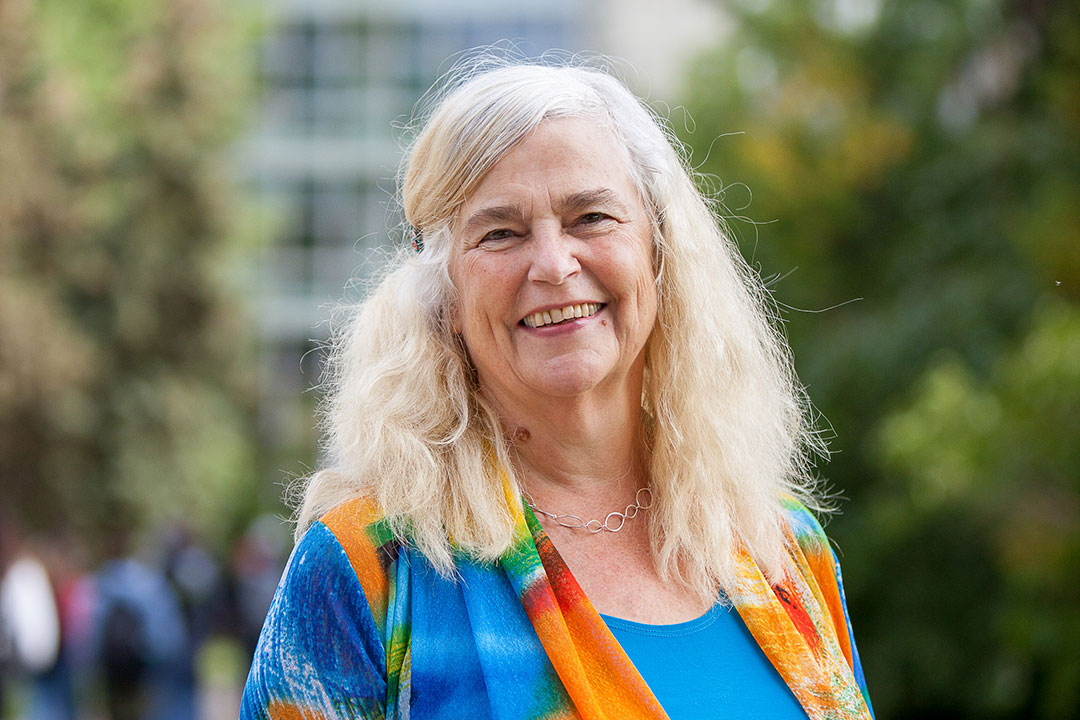
Dean's Report
Outgoing Dean Mary Buhr reflects on the College of Agriculture and Bioresources' growth over the last ten years.
By Mary BuhrI consider myself the luckiest person ever, to have become part of this amazing place known as the College of Agriculture and Bioresources. We Agros have the most amazing attitude, the coolest faculty, and the best students, anywhere, ever!
My first Agknowledge message was as a very new dean, and ten years later I write my last message as your outgoing dean, who has been made a proud Honourary Lifetime Member of our Saskatchewan Agriculture Grads Association and, bestowed by our students, an Honourary Lifetime Agro. I am honoured, humbled and so blessed to be a part of this amazing Agro family! Together we have accomplished so much.
Since 2009, we’ve moved from impacts of the global recession of 2008 through Saskatchewan’s boom years to the current period of shrinking budgets and reduced government spending on universities—although provincial support of agriculture has been and remains strong.
AgBio undergraduate student numbers have gone from 622 in 2009 to 1167 in 2019, contributing to our total growth of diploma, undergraduate and graduate numbers from 939 in 2009 to 1572 in 2019.
We have added the popular new Bachelor of Animal Biosciences and the joint PhD in Applied Economics (with 3 other colleges/schools), revised the Kanawayihetaytan Askiy certificate to create a diploma that allows graduates to ladder into degrees (as do all our diplomas), and we are now proposing a new collaborative degree in Food Sciences. We are also working on reviewing all our undergraduate programs to update them, and considering developing new professional programs to upgrade and enhance professional qualifications for those in, or entering, industry.
We always insist on hands-on learning and practical focus in our teaching and training, and this carries through into our discovery and outreach. This insistence on multi-faceted excellence mirrors the exceptional efforts, talent and determination of all AgBio faculty, staff, students, alumni, partners and donors. Together over the last 10 years we have created the Canadian Feed Research Centre , the Rayner Research and Teaching Facility, the Livestock and Forage Centre of Excellence and the rooftop garden. We have added solar panels, a multi-million upgrade of the Phytotron, purchased thousands of new hectares of land for crop, soil, climate, animal and agroeconomic research and teaching—and the list goes on.
The Agro students raise tens of thousands of dollars for charities and continue to be the bane of the Engineers’ existence.
We have created or renewed over 25 government and industry-funded research chairs—and those professors are teaching, discovering and informing our students, clients and the world in production, policy, science and social awareness.
We have greatly increased our connectivity to, and collaboration with, our Indigenous peoples in First Nations around Saskatchewan, the Arctic and other provinces.
Our faculty has grown from 75 to 82. With that bare 10 per cent increase in numbers of faculty, we have in 2019 brought in 50 per cent more new grants (151 in 2009, 222 in 2019—and that does not include ongoing grants) and tripled our research dollars (value of new grants was $15 million in 2009 and $45 million in 2019). I ask you to put these statistics beside the enormous increase in students and let’s all say together: AGROS ROCK!
And the world is becoming much more aware of us. Our international profile is increasing because of all we do and our impact globally is growing. We are active in India, Brazil, Japan, China, Israel, Ethiopia, Ghana, Australia, the international Arctic, Scandinavia, Ukraine, EU, Mongolia and many more.
As great as all this is, the challenges we face mean we must do more. The sky-rocketing rate of changes in our climate, environment and population are, quite frankly, terrifying. Global economic and social unrest are growing because of these and other pressures. Our northern great plains must lead truly sustainable, regenerative agriculture capable of feeding an unthinkable number of people AND provide bio-based products to replace almost all products currently coming from non-renewable resources—in an environment whose temperature, moisture, wind and water currents, pests, diseases, and social fads cannot be predicted. We need practices, policies and novel (likely, weird and unexpected) approaches to help us cope.
The youngest generation see these issues with crystal clarity—it’s their future at stake. The world faces an enormous, and unstoppable, challenge. Our amazing, understated AgBio college, including current and future Agros who are so firmly rooted in our love of this land and planet, must create a world that, seven generations from ours, will be a better place. Our history says if anyone can do this, it is us. We must work together to be the change the world needs, so Agros, as always, let’s roll up our sleeves and get ‘er done!
From Agknowledge, Fall 2019.

